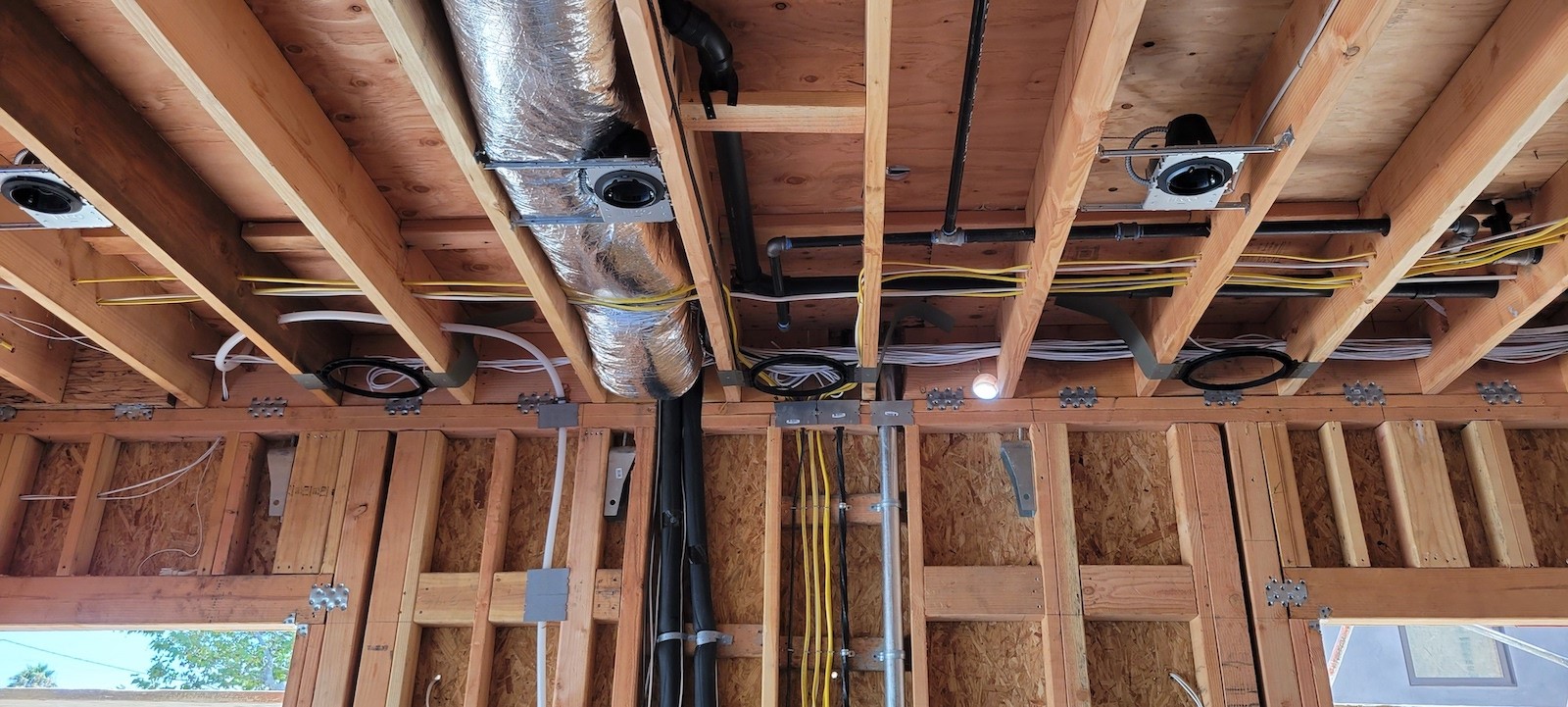What are the Advantages of Smart Home Wiring?
The wiring of a home is an essential step in building and maintenance. It powers everything inside a home, from water heaters to refrigerators to hair dryers. With the advent of smart devices and the Internet of Things, it’s important to reexamine our view of home wiring and look at the possible benefits of smart home wiring.

What is Smart Home Wiring?
As the world goes wireless, it’s important to remember that wiring is still important. Wireless devices need power. However, too many devices connected to one wireless network can lead to slow upload and download speeds and poor performance. Nobody wants that - especially not in today’s work-from-home world.
Smart wiring alleviates this problem. It consists of a series of panels that organize wires and cables to give your smart home better coverage from all of your connected devices. Like structured wiring, smart home wiring has the extra advantage of powering today’s smart technologies and preparing your home for future advancements.
What Devices Use Smart Home Wiring?
Not all of your smart devices need smart home wiring. There are still some devices that will be hardwired, mainly because they need to interact in some way with less-than-smart devices in your home. Here’s a list of the most commonly hardwired smart devices:
- Smart Video Doorbells
- Smart Smoke Alarms
- Smart Thermostats
- Smart Sprinkler Controls
- Smart Wall Outlets
Other than that short list above, almost all of your other devices can be managed via smart home wiring.
What are the Advantages of Smart Home Wiring?
As most people have discovered with the convenience of smart devices and how they have allowed us to simplify our lives, there are many advantages to smart home wiring. Here are some of the biggest.
Lower Electricity Bill
With more data comes a better understanding. Because your smart devices are now interconnected via a wireless network, usage data is just a few taps away on your smartphone. This gives you proactive control of how you use the devices in your home, allowing you to cut down on energy costs by better monitoring your energy use.
Surge Protection for Your Home
Connection is more important than ever, and that’s why a whole house surge protector has become a necessity, especially in areas that face severe weather and storms. This whole house surge protector is wired into your electrical panel and will save all of your wired and wireless devices from a damaging energy surge. This can save you hours in lost time and thousands of dollars in lost equipment.
Insurance Benefits
Because there are many safety devices that can take advantage of smart home wiring, including smoke alarms and carbon monoxide detectors, insurance companies typically offer more favorable rates to homes with smart wiring. However, if you’re only in it for the insurance savings, check with your home insurer for details on how you can make your home compliant and, therefore, eligible for these discounts.
Improved Wi-Fi Coverage
Who doesn’t want a stronger Wi-Fi signal? Smart wiring enhances your Wi-Fi connection and takes care of any dead spots. So you’ll never have to buffer again.
Better Overall Connectivity
Improved Wi-Fi means better connectivity, but there is a hardwired way to ensure you never lose a signal with smart home wiring. Plugging directly into your smart wiring is the safest way to make sure you’re connected.
Enhanced Security
While wireless security systems are great and easy to use, they are also vulnerable to hackers and fail if the Wi-Fi signal goes down. Having a smart wired security system means that your security will keep working whether your Wi-Fi is working or not, making it harder to compromise the system.
How Do You Get Smart Wiring For Your Home?
Smart home wiring, like all electricity, should be installed by a knowledgeable electrician. Try searching for a “smart home wiring electrician” near you, or ask friends or neighbors for any recommendations. However, don’t be surprised if you’re the first one in the neighborhood to indulge in the smart home wiring trend. While the trend of smart devices has risen dramatically in recent years, the installation of smart home wiring is still a little on the infrequent side.
If you’re interested in smart home wiring, reach out to Kudox Network. Our highly trained team of installation experts provide knowledgeable advice and support. Call today (310-827-2288) or contact us to get a quote.